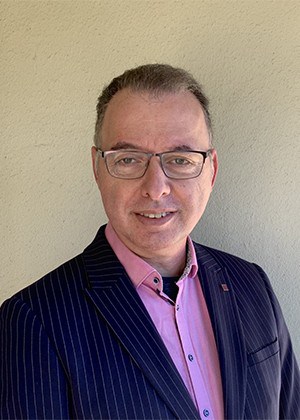
Background
Dr Nectarios Andrews graduated from the University of Sydney in 1989. He worked as a dental officer at Westmead Dental Clinical School where he was seconded to work in the Department of Radiation Oncology.
In 1993 he entered private general practice and was appointed Visiting Dental Officer. He became a Fellow of the Royal Australasian College of Dental Surgeons (general stream).
In 1994 he was appointed Visiting Dental Officer at The St George Hospital, and also worked at Liverpool Hospital, working with the local community dental team to help facilitate urgent dental for Head and Neck cancer patients.
While most of his time is taken up with his private dental practice, Dr Andrews is proud of his continued commitment to his hospital work. He remains part of the multidisciplinary Head and Neck team at both Westmead and St George Hospitals, providing valuable preventive and acute dental care, as well as longer term follow-up and advice.
Dr Andrews has been published in the Australian Dental Journal, Annals of the Royal Australasian College of Dental Surgeons, and dental periodicals. He has lectured to final year dental students and for the Maxillofacial Programme for DClinDent Prosthodontic post-graduate students on the subject of dental management of Head and Neck radiotherapy patients. He has presented at several dental study groups and to Head and Neck cancer survivors.
Dr Andrews finds working in the field of Head and Neck cancer immensely satisfying, and is humbled by the good grace and stoicism of the patients he has the privilege to care for. He also values the tremendous contribution and mentorship of innumerable clinicians, medical and allied health, and support staff along the way.
He is grateful to be able to work in such a collegial and supportive environment, alongside peerless professionals and experts in their fields; the patients treated at these institutions, and others like them across the country, are very fortunate indeed to have such a high standard of care when it comes to the delivery of cancer services.
That’s not to say there isn’t room for improvement; for too long dentistry has, inexplicably, been excised from medicine as a whole, at least in the eyes of some health bureaucrats and politicians.
The long-term sequelae of Head and Neck cancer treatments are life-long, and these most vulnerable of patients, having already battled a cancer diagnosis, are too often doomed to a life of devastating dental pathology with crippling functional and emotional outcomes. We, as a caring society, and they, deserve better.
